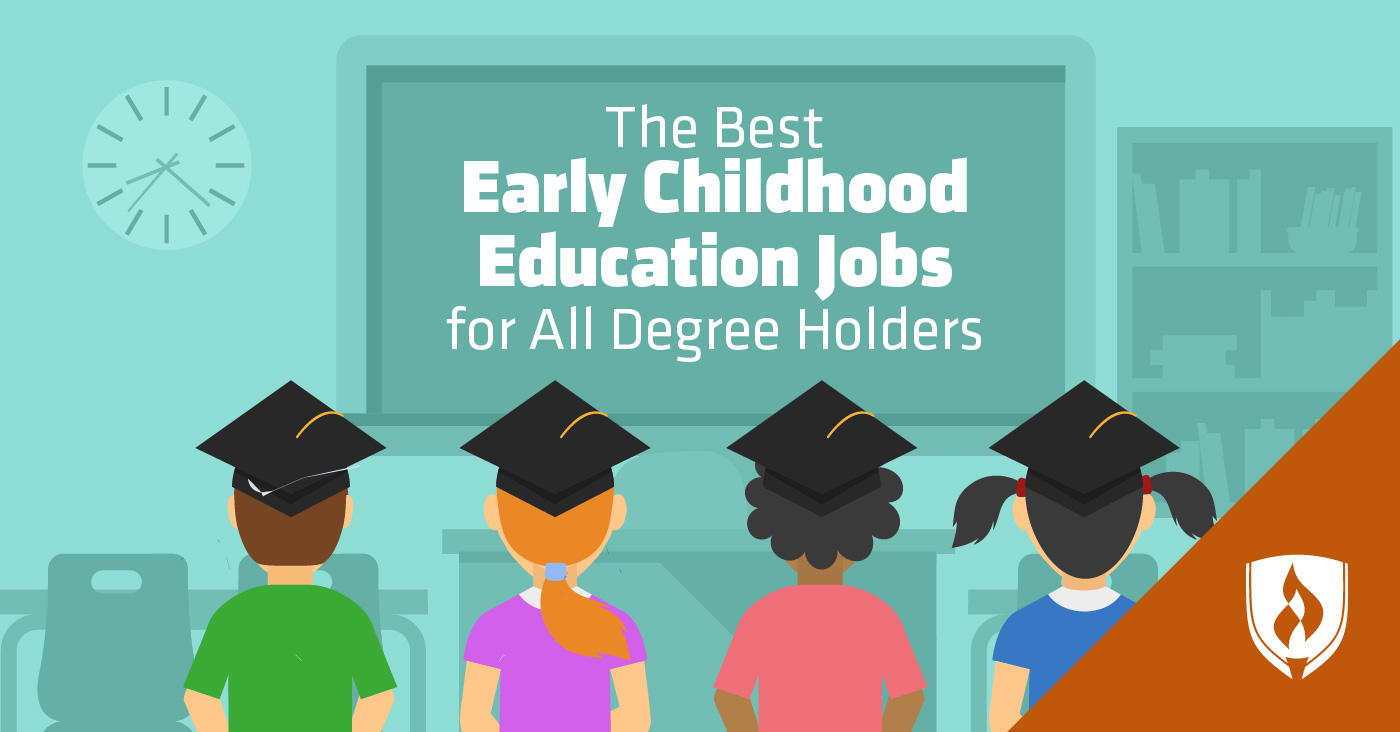
There is nothing better than seeing a child’s face light up when they learn a new concept or discover something that excites them. You love when you are able to bring this enlightenment about and contribute to a child’s overall education and wellbeing. Naturally, a career in childhood education would be a great fit for you.
But maybe you don’t want to be a teacher, or don’t know which type of teacher you’d like to be. Early childhood education (ECE) is a big field with many opportunities, some of which you may not even know about. You should know your options before choosing a career path to follow, which is why we’ve wrangled up a list of early childhood education jobs.
This list will give you a better idea of what these jobs entail, the duties associated with each role and what employers are looking for when it comes to training and education.1
5 early childhood development jobs worth checking out
So which is the best ECE job for you? Take a look at this list of careers in early childhood education to see which best aligns with your skills and interests.
1. Preschool teacher
Preschool teachers are essential in helping children learn the basic building blocks of many subjects such as reading, math and spelling. If you love making a difference in the lives of children, a preschool teacher could be for you. They work with children age four and younger, and are often the first educators in a child’s life.
Duties:
- Aid in the development of important social skills in children—such as how to share and play in groups of kids
- Assist in the social, physical and intellectual growth of children through the use of arts and crafts, music, storytelling, shapes and letters
- Contribute to the development and education needed for children to advance to kindergarten
Education requirements: 51 percent of job postings prefer applicants with a Bachelor’s degree, while 34 percent of job postings list a preference for candidates with an Associate’s degree.1
2. Kindergarten teacher*
Working with children ages 5–6, kindergarten teachers have the same high importance as preschool teachers in educating the next generation. Kindergarten teachers educate children on slightly more advanced topics than preschool teachers—they help children learn to write, count to higher numbers, and lay the foundation for reading simple words.
Duties:
- Introduce to and teach children subjects such as science, reading, music, art and math
- Aid students with physical, mental and social development
- Meet with parents to discuss a child’s progress, abilities, strengths and weaknesses
Education needed: 92 percent of job postings prefer candidates with a bachelor’s degree.1
3. Teacher’s assistant*
Not sure if you want to commit to leading a classroom full of boisterous little ones? Teacher’s assistants are the often unsung heroes who help teachers keep everything and everyone in control in an often rambunctious setting. Don’t let the “assistant” fool you; they often act as one-on-one teachers for children who need a little more assistance.
Duties:
- Provide one-on-one help for students with disabilities or students who speak English as a second language
- Tutor children, observe behaviors and performance, and organize activities for physical, mental and social development
- Assist teachers with classroom tasks such as setting up equipment or taking attendance
Education needed: 82 percent of job postings require a high school diploma or vocational training, with 17 percent preferring an associate’s degree.1
4. Childcare worker
If teaching doesn’t seem like the right fit for you, consider the career of a childcare worker or childcare assistant. Those in this role can often be found in a childcare center, or in a private household in which they typically care for fewer children. Childcare workers are vital when parents cannot watch their children during the workday, or children are too young to attend school.
Duties:
- Oversee safety of children in care
- Engage children in activities that incorporate play and learning
- Attend to basic cares such as feeding, changing and bathing
Education needed: 76 percent of job postings require at least a high school diploma or vocational training; however, 24 percent of postings list a preference for candidates with a either an associate’s or bachelor’s degree.1
5. Childcare center director
For those seeking a managerial position within early childhood education, being a childcare center director could be the right fit. These directors, also sometimes known as education coordinators or preschool directors, are responsible for the daily activities and functions of a childcare center or preschool. Many in this role still have the opportunity to teach little ones, though there’s also important administrative tasks such as lesson planning, budgeting and staff scheduling in the mix.
Duties:
- Hire, train and supervise staff and teachers
- Follow state and federal regulations to ensure center and school meet these standards
- Assist staff in developing curriculum and communicating with parents
Education needed: 72 percent of job postings require applicants to have at least an associate’s degree—with 50 percent of all openings requiring a bachelor’s degree.1
Start your journey in early childhood education
Your passion and talent for working with children can manifest itself in more than simply babysitting for your friends and family. As you can see from this list of careers in early childhood education, you can build an entire career out of teaching or caring for little ones.
Still not sure which position you’d like to pursue? That’s ok! An ECE degree can lead you down a variety of career paths. You don’t have to make up your mind just yet.
Learn more about what a formal education entails in our article, “Should I Be an ECE Major? All the Info You Need to Know.”
1Burning-Glass.com (analysis of early childhood education job postings, Jun. 1, 2016–May 30, 2017).
*Graduates of Early Childhood Education programs at Rasmussen College are not eligible for licensure as a teacher in an elementary or secondary school. A Bachelor’s degree and a state teaching license are typically required to work as a teacher in public and private school settings.
EDITOR’S NOTE: This article was originally published in December, 2012. It has since been updated to include information relevant to 2017.




